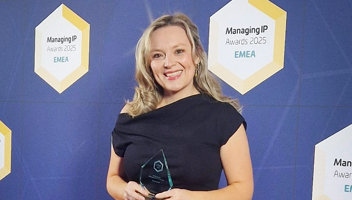This is the third blog in our series and will discuss common misconceptions surrounding copyright infringement mainly in relation to the use of images on websites and social media content.
The first two parts of this series can be accessed here and here.
“I didn’t make any profit from use of the image on my website. Am I still liable for damages?”
It is often assumed that if no profit is made from the use of a copyright protected image that no damages are payable to the copyright holder. This is not the case.
Damages in relation to copyright infringement can relate to the loss suffered by the copyright holder as an alternative to the profit made from use of the image.
The loss is typically assessed as the amount the copyright holder could have earned had the infringer purchased a license prior to using the image, which is usually in accordance with a standard licensing practice.
The amount charged for use of the image, and therefore the loss suffered, will take into account the use of the image, its placement on the website and the duration of the use.
“An employee uploaded the image to our company website. Are we still responsible for the infringement?”
Copyright infringement can occur even when the infringer has no knowledge of it or has not intended for the infringement to occur.
Liability for infringement in terms of the Copyright, Designs and Patents Act 1988 is strict and the infringing act is carried out as soon as the image has been communicated to the public (i.e. displayed on the infringer’s website without a licence from the copyright holder).
Employers are vicariously liable for the actions of their employees where the employee commits an infringing act during the course of their employment.
Therefore, companies should have strict procedures in place to ensure they have the relevant licences in place before using any images or other copyright works.
“Can damages be claimed for a breach of the photographer’s moral rights?”
Moral rights are rights concerned with protecting the author’s personal relationship with their work and the non-economic value of it (e.g. the intellectual / emotional work that has been put into its creation).
There is a general misconception that moral rights can be claimed much more readily than is actually the case.
Moral rights are personal to the photographer meaning they cannot be assigned including to an employer. This has been discussed most recently in the case of The Front Door (UK) Limited t/a Richard Reid Associates v The Lower Mill Estate Limited, Habitat First Limited, Willmore Iles Architects Limited, Savills (UK) Limited [2021] EWHC 2324 (TCC) .
Here the Judge set out that as the Claimant was not the author of the copyright protected works, it did not have and could not acquire any moral rights in respect of the works.
The author of the works had been an employee of a company that had assigned copyright to the Claimant. It was made clear that the moral rights were personal to the author/employee and these could not be assigned to his employer nor the Claimant.
Therefore, an employer of a photographer (regardless of whether copyright has been assigned or not) cannot claim moral rights in respect of any copyright infringement.
It is only the author of the copyright works that can claim for a breach of moral rights e.g. in the case of a photograph the photographer.
“It’s not copyright infringement to re-share something on a social media platform”
This is not necessarily true.
A recent Hamburg Court decision (case No. 310 O 352/20) has made clear that if copyright protected content was initially communicated without the consent of the copyright holder, then each re-sharing may be copyright infringement.
This is because the content may then have been communicated to a ‘new public’.
This depends on whether a person posting the link knew or should have known that the link led to content that had been uploaded without the consent of the copyright holder.
“I purchased genuine goods which include copyright works. Can I re-sell them?”
The short answer is….maybe.
If a product (think about a poster or print) is sold by the copyright owner or with the copyright owner’s permission, the copyright owner’s rights are “exhausted” at the point of that sale.
This means that the copyright owner cannot enforce its rights in their copyright protected works if the buyer were then to re-sell the genuine goods at a later date.
However, if the buyer of the genuine goods makes copies of the genuine goods / copyright protected works and sells those copies (e.g. you made your own mugs and t-shirts with the image on them or made your own prints / posters which included the copyright works) then they could be liable for copyright infringement.
The ECJ found in the case of Art & Allposters International BV v Stichting Pictoright (a case relating to the copyright in posters that were converted onto canvas transfers by the defendant) that if the object including the copyright work was altered after initial marketing to the extent that it amounted to a now reproduction of that work, then the copyright holders right in copyright is not exhausted and copyright can be enforced.
If you would like more information on any of the issues covered in this article or any other aspect of intellectual property law please let us know.
Written by
Related News, Insights & Events

Data Spring Webinar Series: Data Governance Demands in 2025
20/05/2025 - Online webinar
Our upcoming data webinar series will consider key data protection compliance requirements, explore data governance best practice, and highlight key areas of interest for the UK regulator (ICO).

Dawn Raids – recovery of evidence in Scotland
An overview of the Dawn Raid in Scotland with key implications of the Section 1 order known as Administration of Justice (Scotland) Act 1972.

Six in a row for Burness Paull at prestigious IP legal awards
11/04/2025
Burness Paull has won the award for Scotland IP Disputes Firm of the Year for the sixth year in a row at the Managing IP EMEA Awards 2025.





